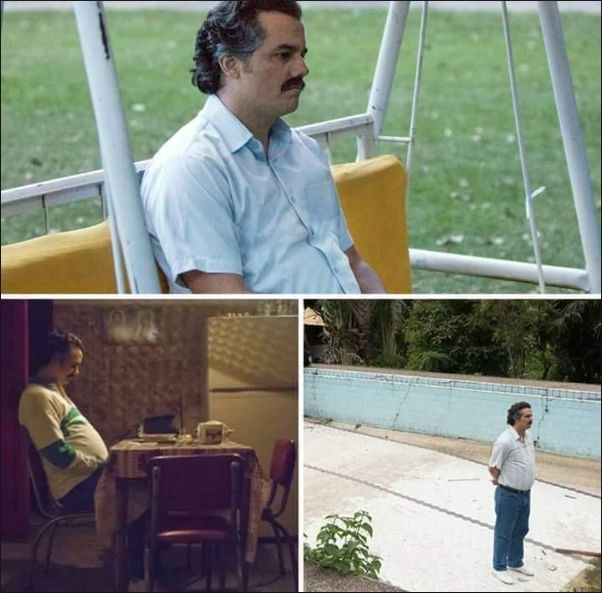Definitely a “woah bruh 420 blaze it” kind of thought this eve, but I’m wondering if there is a philosophy, lifestyle, or technique that addresses this:
I often wish for some way of making anything worth doing, therefore removing the need to judge whether something is worth doing.
Many hours of my “free time” outside of work are a struggle of meta-evaluation re: “time investment” and feel it would be so much more peaceful to outgrow this mindset
Edit: Thank you all for sharing your thoughts and advice. Seeing both simple truths and nuanced anecdotes makes for wonderful reading, and I’m glad I put this question out there ✨
Happiness is worth doing.
The earlier you realize that the only reason to be as productive as possible is to maximize your free time the better your life will be.
Optimistic nihilism is my chosen way of life. Here’s a really good kurzgesagt video on it: https://youtu.be/MBRqu0YOH14?si=2xh3B1eQJN4xosI6
[insert happy/sad bus meme, but both sides say “nothing matters”]
Another way of thinking of it, if you only get to experience this once, make it the best experience you can.
YEAAAHHHH OPTIMISTIC NIHILISM MENTIONED
NIXOS MENTIONED (I just mentioned it) HAVE IOU TRIED NIXOS?
I’m reading a book about fostering good habits, and there’s this novel idea that you should celebrate your small victories.
As someone who has struggled with depression most of my life, I can tell you that often times most things don’t seem worth doing. Like, why bother making the bed if I’m just going to mess it up later?
Well, if you only do the things that seem worth doing, you can run into trouble when your perception of what’s worth doing is skewed. And as you do less and less because nothing seems worth it, you’ll find that it starts taking more effort to do anything at all.
But if you allow yourself to feel good because you did something, the outlook starts to shift. Suddenly you want to do things because that means you’re winning. Nothing feels better than feeling good, so your brain will seek out more of that behavior.
Then almost before you know it, you realize your perspective has shifted. Nothing seemed worth doing before, but now suddenly everything is worth doing as long as you can feel good while you’re doing it.
Okay, so enough with the sermon, here’s the technique:
Break the activity into its smallest part, and when you accomplish that part immediately celebrate.
Example, if you want to make flossing more worthwhile, celebrate after you floss each tooth.
That’s it.
Celebrating will look different for different people. Say “Awesome job!”, fist pump, strike a pose, do a dance, smile, make sound effects, congratulate yourself, imagine thunderous applause, pretend you’re in a video game and you just got 100 points, mentally affirm that you’re starting to get your shit together. It doesn’t matter what it is, as long as it makes you happy.
Anyway, I don’t promise it’ll be easy or happen overnight. But if you start small you can foster this feeling of celebration and suddenly things will seem more worthwhile.
This type of advice I had expected from my phycologist.
Value is a personal and arbitrary decision. You are free to value anything you want as much as you want. Everyone has this freedom.
This means that everything can “be worth doing” to anyone who chooses to value it highly enough compared to the cost of doing it.
Peace.
Of course. Even nothing is something worth doing.
Inb4 someone recommends you read some Nietzsche.
Value is only determined by what someone is willing to spend.
If you spent your night playing a video game, then that was worth it, because that’s what you paid for it. Simple as that.
Everything you do is already worth it.
Just wait until this extends to “work” as well!
Seriously though, nothing is “worth” doing. Eventually we’ll have the heat death of the universe. Or our sun will die and we haven’t figured out interstellar travel. Or climate change will destroy everything. Or you’ll just simply die.
Once you accept that nothing is worth doing though, is when you can stop worrying if something is worth doing and just do it. Like you could either do nothing and end it now or do something. Usually, your natural biological will to live won’t let you do nothing and end it, so you might as well do something.
In my mind anything that you like, that isn’t just “work” - stuffing the pockets of capitalists on behalf of your labour - is worth doing
I get what you mean about “woah bruh” but this is actually a very good question. It’s also very difficult to answer because what we value is very personal to each of us. My advice is if something piques your interest or looks enjoyable then try it. You’ll find out then if it’s worth doing. If not that’s fine, you won’t waste any time wondering. The funny thing about regret is it’s better to regret something you’ve done than to regret something you haven’t done.
Keep it simple, simple things makes living easier. Do not idealize your reality or you will just keep complaining about everything instead of doing something about it.
Walk around in the warm summer rain without an umbrella and smell the plants and ask yourself what is the worth of this
Meditations by Marcus Aurelius might help. It’s a bit hard to judge without knowing more about your situation.
You could also look into mindfulness. When I feel rushed by my internal monkey drive and I am tired of it, I just slow down. More and more, gradually. If it doesn’t go away I’ll simply stop what I am doing. I’ll just sit down on a chair lol. Trust me that drive will die down and that will give you space to live. Just want to do my darn dishes in peace!

Time spent in pleasure is never wasted.
The act of engaging fully in things without worrying about their value is called “playing”.
My advice, if you need a formal way to start playing, would be to join an acting class and then act in some roles.
Being an actor requires you to be able to go all in regardless of how real or fake a thing is. It will allow you to practice decoupling your investment from any evaluation of whether it’s worth it.
Like, if you’re playing an Oompah Loompah, you will act out being very concerned with the running of candy-making machines, despite having zero call for such focus in real life.
This is why we call it “acting”. It’s acting in the sense a robot’s “actuators” are its output. As an actor you cease focus on input and processing, and put all of your focus on your output, your action.
Which is, in a particular way, exactly what your question is asking for.






